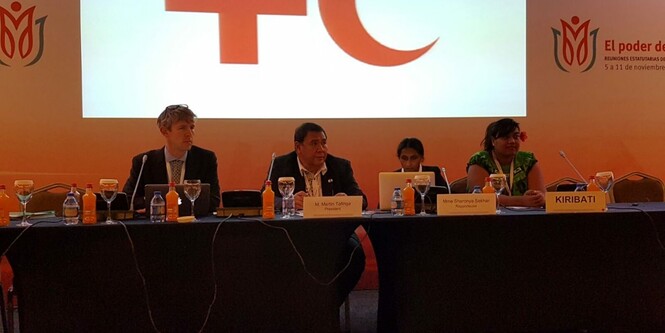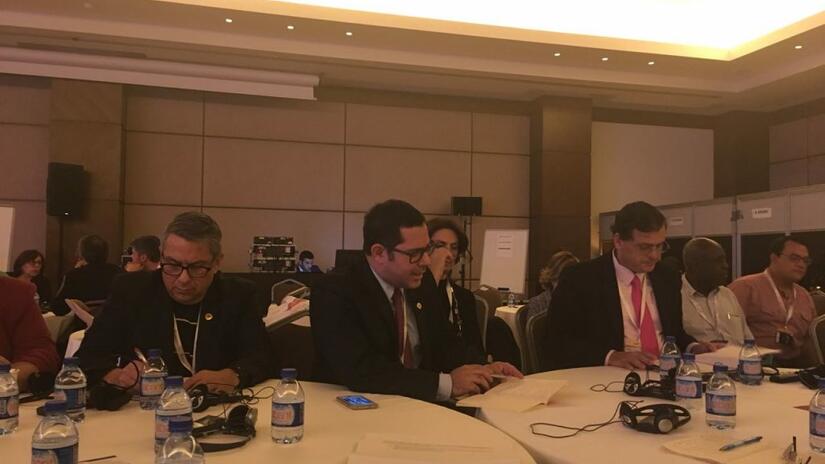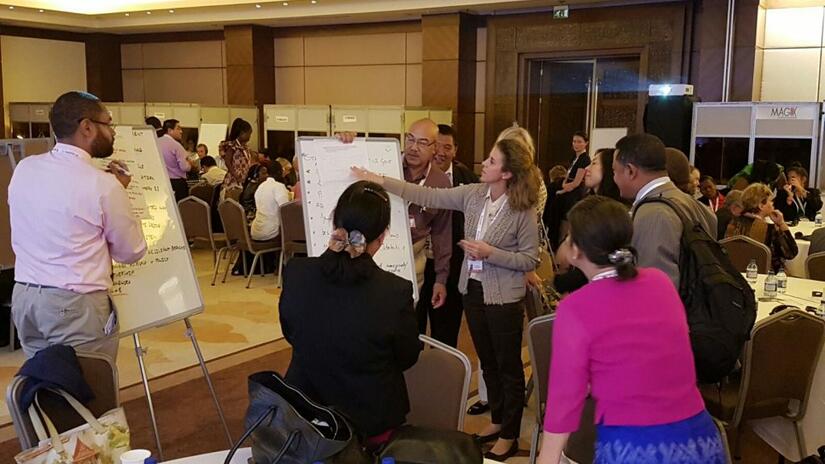
At the 2017 Red Cross Red Crescent Statutory Meetings, held last November in Turkey, a room full of representatives of National Societies from every region gathered together with the IFRC and ICRC to design a common vision on how to strengthen resilience. The focus of their discussion was on the role that effective laws and policies for disaster management, climate change, first aid and sexual and gender-based violence can play in the resilience building process.
Through a rich and interactive discussion, National Societies shared the progress made thus far in influencing and promoting disaster laws as well as the challenges faced, highlighting the need to promote understanding of their core function: the auxiliary role.

Within the main conclusions of the workshop, National Societies recognized that at national level, they must increase their expertise in disaster law and its tools in order to become an essential government partner in policy promotion and development. Moreover, the creation of multi-disciplinary committees on legislative advocacy was identified as a crucial next step to strengthening national capacities to advocate for policy change and a better understanding of the National Society mandate.
Participants agreed that, at the global level, the Red Cross Red Crescent Movement should take part not only in policy formulation and advocacy, but to also devote its efforts to the implementation phase. National Societies are interested in continuing to train on disaster law, climate change and advocacy, highlighting as well, the importance of peer to peer interaction and support among regions.
In preparation for the next International Conference, which will take place in 2019, the participants concluded that disaster law and climate change should be placed high on the agenda as critical topics, and to reinforce the Movement’s commitment to tackling these issues, due to the humanitarian significance they represent. In this regard, National Societies will lead the promotion of national and regional pledges on these issues.

The workshop reinforced that disaster and climate policy remain key pillars of the resilience agenda and an enabler for the effective implementation of key international agreements, including the Paris Agreement, the Sendai Framework for DRR and the Sustainable Development Goals.
National Societies are committed to supporting their governments to ensure that national legal frameworks are enhanced, integrating climate change adaptation and securing effectiveness in disaster management, including gender equality and protection against sexual and gender-based violence.